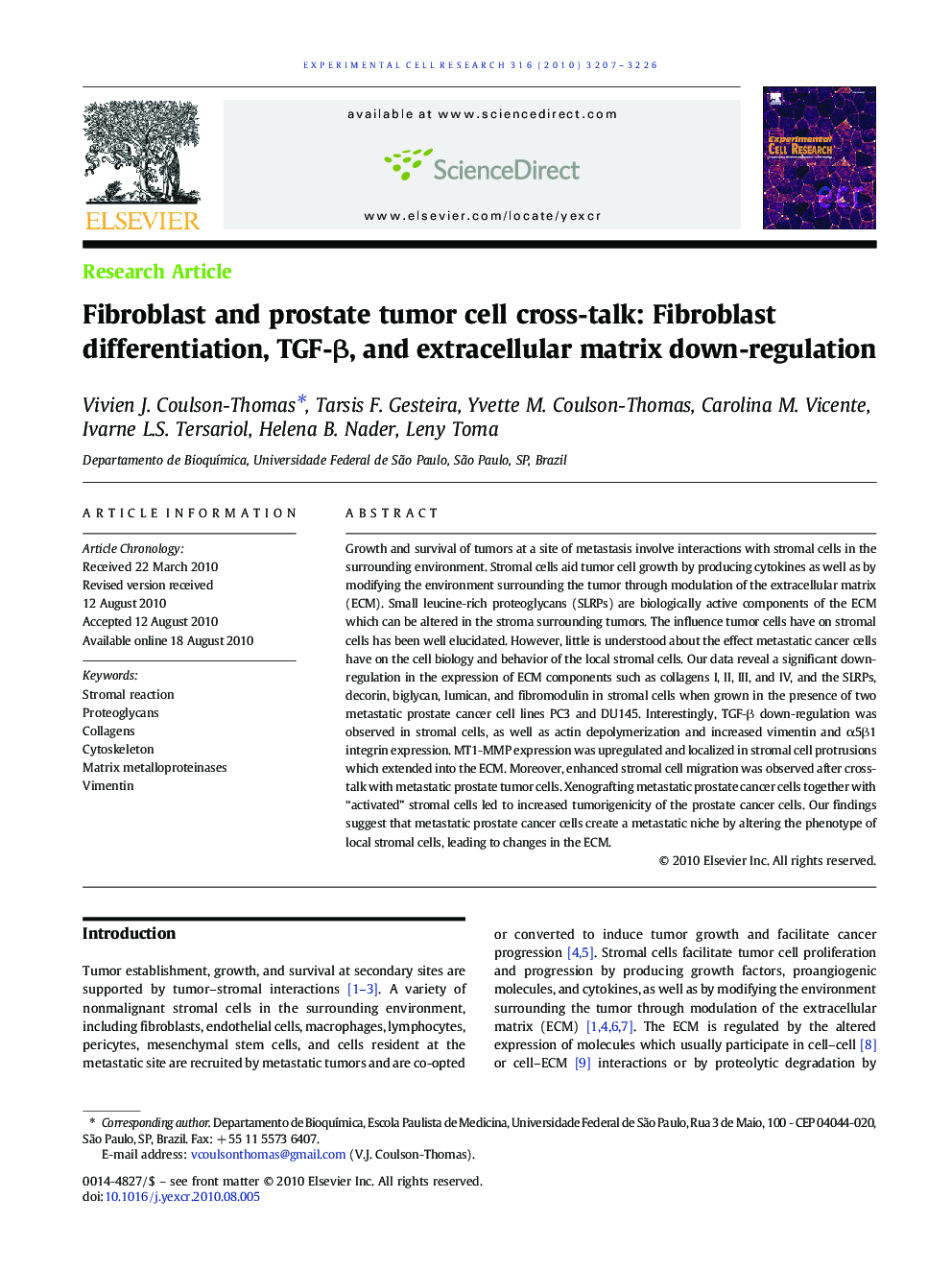| Article ID | Journal | Published Year | Pages | File Type |
|---|---|---|---|---|
| 2131010 | Experimental Cell Research | 2010 | 20 Pages |
Growth and survival of tumors at a site of metastasis involve interactions with stromal cells in the surrounding environment. Stromal cells aid tumor cell growth by producing cytokines as well as by modifying the environment surrounding the tumor through modulation of the extracellular matrix (ECM). Small leucine-rich proteoglycans (SLRPs) are biologically active components of the ECM which can be altered in the stroma surrounding tumors. The influence tumor cells have on stromal cells has been well elucidated. However, little is understood about the effect metastatic cancer cells have on the cell biology and behavior of the local stromal cells. Our data reveal a significant down-regulation in the expression of ECM components such as collagens I, II, III, and IV, and the SLRPs, decorin, biglycan, lumican, and fibromodulin in stromal cells when grown in the presence of two metastatic prostate cancer cell lines PC3 and DU145. Interestingly, TGF-β down-regulation was observed in stromal cells, as well as actin depolymerization and increased vimentin and α5β1 integrin expression. MT1-MMP expression was upregulated and localized in stromal cell protrusions which extended into the ECM. Moreover, enhanced stromal cell migration was observed after cross-talk with metastatic prostate tumor cells. Xenografting metastatic prostate cancer cells together with “activated” stromal cells led to increased tumorigenicity of the prostate cancer cells. Our findings suggest that metastatic prostate cancer cells create a metastatic niche by altering the phenotype of local stromal cells, leading to changes in the ECM.
